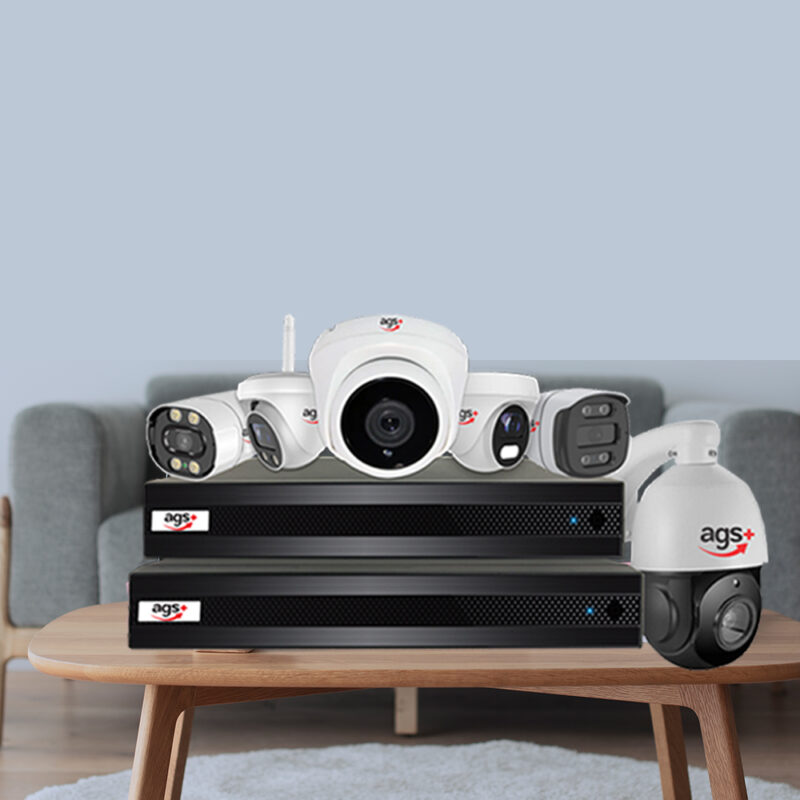Uncategorized, Ahmedabad, article
Full Form of CCTV 2024?:Closed-Circuit Television
Closed-Circuit Television (CCTV) Cameras: A Comprehensive Overview
Full Form of CCTV
Closed-Circuit Television, commonly known as CCTV, is a sophisticated technology that has become an integral part of modern surveillance systems. CCTV cameras play a crucial role in monitoring and securing various environments, ranging from public spaces to private properties. This article explores the full form of CCTV, its significance, and different types of CCTV cameras.
Full Form of CCTV and buy now www.agsplus.in
Full Form of CCTV: CCTV stands for Closed-Circuit Television. The term “closed-circuit” implies that the video feeds captured by CCTV cameras are transmitted to a specific set of monitors or recording devices, as opposed to being openly broadcast. This closed nature enhances security and privacy, making CCTV an ideal choice for surveillance purposes.
Full Form of CCTV
Significance of CCTV Cameras: CCTV cameras have gained immense popularity due to their effectiveness in deterring crime, monitoring activities, and providing evidence in various situations. The presence of CCTV cameras often acts as a deterrent, discouraging potential wrongdoers from engaging in unlawful activities. Additionally, these cameras serve as invaluable tools for investigating incidents, enhancing public safety, and maintaining a secure environment.
Types of CCTV Cameras: CCTV cameras come in various types, each designed to cater to specific surveillance needs. Here are some common types of CCTV cameras:
Full Form of CCTV
- Dome Cameras: Dome cameras are named for their dome-shaped housing. They are versatile and suitable for indoor and outdoor use. The design makes it difficult for individuals to determine the direction the camera is pointing, adding an element of discretion.
- Bullet Cameras: Bullet cameras have a cylindrical and elongated shape resembling a bullet, hence the name. They are often used for long-distance viewing and are particularly suitable for outdoor installations. Bullet cameras are noticeable and can act as a visible deterrent.
- PTZ Cameras: PTZ stands for Pan-Tilt-Zoom, and these cameras offer the flexibility to move horizontally, vertically, and zoom in on specific areas. PTZ cameras are remotely controllable, allowing operators to focus on specific points of interest.
- IP Cameras: IP cameras, or Internet Protocol cameras, transmit data over a network. They offer high-resolution images and can be accessed remotely through the internet. IP cameras are popular for advanced surveillance systems.
- Wireless Cameras: Wireless cameras eliminate the need for physical cables by using Wi-Fi or other wireless technologies for data transmission. They are easy to install and provide flexibility in camera placement.
- Thermal Cameras: Thermal cameras detect infrared radiation, allowing them to create images based on temperature differences. These cameras are effective in low-light conditions and are commonly used for perimeter security.
- 360-Degree Cameras: Also known as panoramic cameras, 360-degree cameras provide a comprehensive view of the surroundings. They are suitable for monitoring large areas with a single camera.
- ANPR Cameras: Automatic Number Plate Recognition (ANPR) cameras are specialized cameras designed to capture and recognize license plate numbers. They are commonly used for traffic monitoring and law enforcement.
- Covert Cameras: Covert cameras, also known as hidden or spy cameras, are discreetly designed to blend into the environment. They are used for discreet surveillance without drawing attention.
- 4K and Ultra HD Cameras: 4K and Ultra HD cameras offer exceptionally high resolution, providing clear and detailed images. They are suitable for applications where intricate details are crucial.
In conclusion, Closed-Circuit Television (CCTV) cameras have evolved significantly, offering a wide range of options to meet diverse surveillance needs. Whether for home security, business monitoring, or public safety, choosing the right type of CCTV camera is essential for achieving effective and reliable surveillance. As technology continues to advance, the capabilities of CCTV systems are likely to expand, contributing to enhanced security measures worldwide.
Full Form of CCTV


